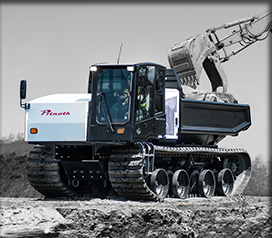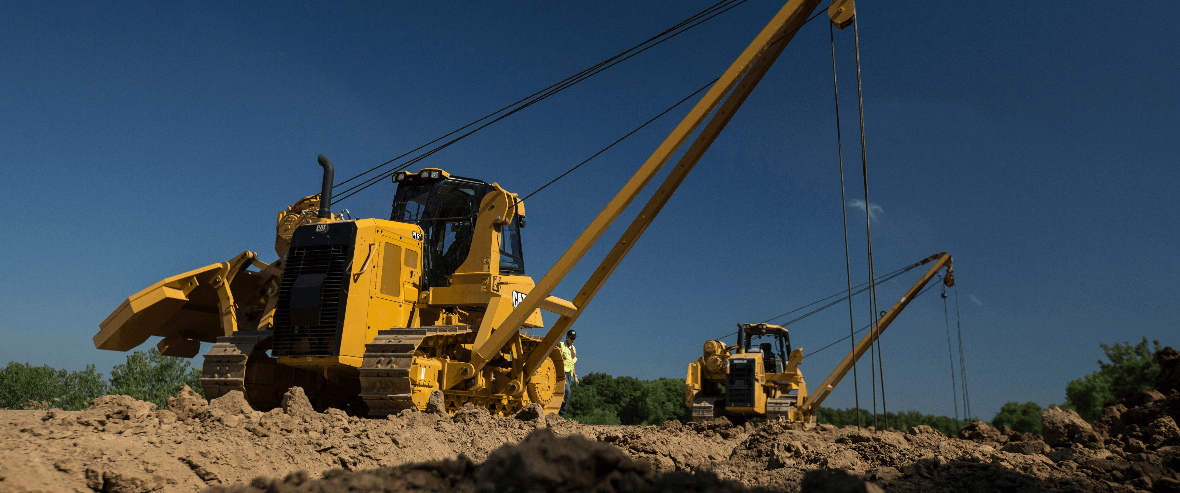A Comprehensive Overview to the Different Types of Oil Field Equipment and Pipeline Equipment Available
The oil and gas industry relies greatly on customized equipment for efficient removal and transportation. Numerous kinds of machinery, from piercing rigs to tank, play vital functions in this complex process. Each piece of tools offers unique functions that add to general functional success. Comprehending these components is crucial for anyone associated with the market. As the market progresses, so as well do the technologies that support it. What advancements are on the horizon?

Drilling Rigs: The Foundation of Oil Expedition
Drilling rigs offer as the important machinery in the domain of oil expedition, enabling business to accessibility hydrocarbon gets hidden deep beneath the Earth's surface. These rigs come in numerous types, consisting of land rigs, offshore rigs, and mobile devices, each designed to run in particular settings. Furnished with advanced innovation, piercing rigs can penetrate geological developments with precision, making certain reliable resource removal. The structural honesty and operational abilities of these rigs are important, as they need to withstand severe conditions and substantial stress. In addition, the option of a drilling rig influences the total job expense and timeline, making it a vital factor to consider for oil companies looking for to enhance their exploration efforts and maximize productivity in their operations.
Pumps: Necessary for Fluid Motion
In the oil extraction process, the function of pumps is substantial, helping with the activity of liquids throughout numerous stages of manufacturing. Pumps are important for transporting petroleum, water, and various other liquids from below ground storage tanks to the surface and afterwards via pipelines to refineries. They come in various kinds, including centrifugal, favorable variation, and completely submersible pumps, each serving details functions based upon the liquid characteristics and operational needs. Centrifugal pumps are typically made use of for their performance in high-flow applications, while favorable displacement pumps master dealing with thick liquids. The selection of pump influences general performance, functional safety, and maintenance costs. Correct choice and maintenance of pumps are crucial for enhancing production and decreasing downtime in oil area procedures.
Shutoffs: Controlling Circulation and Pressure

Shutoffs play a crucial duty in handling the flow and pressure of fluids within oil areas and pipelines. Different kinds of valves offer distinct applications, each developed to meet details functions basic for reliable procedure - Superior Rentals fusion machines. Comprehending the qualities and uses of these valves is vital for optimizing system efficiency and security
Kinds of Valves
Essential elements in oil field procedures, valves play an essential role in managing the flow and stress of liquids within pipes and tools. Various kinds of valves are used to satisfy the varied requirements of oil and gas production. Typical kinds consist of entrance shutoffs, which supply a straight-line flow and very little pressure drop; globe valves, recognized for their throttling capacities; and ball shutoffs, acknowledged for their quick on/off control. Furthermore, check shutoffs protect against backflow, while butterfly shutoffs provide a lightweight solution for managing flow. Each valve kind is created with certain materials and configurations to endure the severe problems typically located in oil fields, making certain reliability and efficiency in procedures. Understanding these kinds is crucial for reliable system management.
Valve Applications and Features
While various types of valves serve unique purposes, their primary applications revolve around controlling flow and stress within oil and gas systems. Valves such as entrance, world, and sphere valves manage fluid activity, making certain peak performance and safety and security. Entrance valves are commonly made use of for on/off control, providing marginal circulation resistance. Globe shutoffs, on the various other hand, deal specific flow law, making them appropriate for throttling applications. Ball valves are preferred for their fast procedure and tight securing abilities. Furthermore, stress alleviation valves are vital for protecting against system overpressure, safeguarding tools stability. Overall, the appropriate choice and application of valves improve operational efficiency, making certain the trustworthy transport of oil and gas through pipelines and processing centers.
Compressors: Enhancing Gas Transport
Compressors play a crucial function in the reliable transport of gas, making certain that it relocates smoothly through pipelines over long distances. These gadgets raise the stress of gas, allowing it to get rid of rubbing and altitude changes within the pipeline system. Additionally, compressors assist in the harmonizing of supply and demand, suiting variations in consumption and manufacturing rates. Various kinds of compressors are employed in the sector, including centrifugal, reciprocating, and rotating screw compressors, each offering unique benefits based upon the functional needs. Routine maintenance of these compressors is necessary to optimize efficiency and minimize downtime, inevitably adding to a reliable gas transportation network. Their important feature emphasizes the importance of compressors in the general oil and gas framework.
Storage Tanks: Safe and Efficient Liquid Management
Efficient transportation of all-natural gas relies upon different sustaining systems, among which is the correct administration of tank. These containers play a crucial role in safely including liquids, making certain that functional performance is maintained while reducing environmental risks. Constructed from resilient materials, they are developed to stand up to high pressures and corrosive aspects. Correctly sized and tactically situated, tank assist in the smooth flow of gas and various other liquids, protecting against traffic jams in supply chains. Regular maintenance and tracking are imperative to spot leakages or structural concerns, promoting safety and compliance with governing criteria. Ultimately, the reliable administration of storage containers is vital for the total honesty and reliability of the oil and gas market's fluid handling systems.
Pipeline Systems: Infrastructure for Transportation
Pipeline systems function as the backbone of the oil and gas industry, helping with the reliable transport of hydrocarbons over vast ranges. These systems contain different elements, including pipelines, shutoffs, pumps, and compressors, all diligently created to guarantee smooth circulation. The materials utilized in pipeline building, often steel or high-density polyethylene, are selected for sturdiness and resistance to corrosion. Pipeline networks can cover throughout land and water, attaching manufacturing websites to refineries and warehouse. Furthermore, progressed modern technology makes it possible for real-time tracking of circulation rates and stress degrees, enhancing operational performance. The critical positioning of these pipes minimizes ecological influence while taking full advantage of source access, thereby playing an important role in conference power demands around the world.
Safety And Security Equipment: Making Certain Employee and Environmental Management
The procedure of pipeline systems, while important for energy transportation, likewise presents considerable security obstacles for workers and the setting. Safety and security equipment plays a significant duty in find here minimizing these threats. Individual safety equipment (PPE) such as helmets, handwear covers, and non-slip footwear safeguards employees from physical hazards. Furthermore, gas discovery systems check for leakages, guaranteeing that harmful go to this web-site substances do not posture a hazard to employees or the bordering community. Emergency shutdown systems are essential for quickly halting operations during a crisis, preventing possible disasters. Spill containment products, consisting of absorbents and barriers, are basic for decreasing ecological impact. Overall, purchasing all-inclusive safety and security tools is important for preserving functional honesty and safeguarding both workers and the setting in the oil and gas industry.

Frequently Asked Inquiries
How Do I Select the Right Oil Field Equipment for My Project?
Picking the best oil field devices involves evaluating task specifications, budget restrictions, and functional needs. Consider elements such as devices dependability, compatibility with existing systems, and the distributor's track record to ensure peak performance and safety.
What Are the Upkeep Demands for Oil Field Equipment?
Maintenance demands for oil area tools consist of routine examinations, lubrication, and timely repair services. Operators must additionally abide by producer guidelines, display efficiency metrics, and assurance conformity with safety guidelines to boost durability and performance.

Exactly How Can I Make Certain Conformity With Environmental Laws?
To guarantee conformity with environmental policies, companies should perform normal audits, execute finest methods, spend in training, preserve correct documents, and remain updated on regulations (Superior Rentals near me). Partnership with environmental firms can likewise boost adherence to regulations
What Is the Typical Lifespan of Pipeline Equipment?
The average lifespan of pipeline equipment commonly varies from 20 to 50 years, relying on aspects such as material high quality, ecological conditions, and upkeep techniques. Normal examinations can greatly influence durability and operational efficiency.
Exactly how Do I Securely Carry Oil Field Equipment to Remote Locations?
Transporting oil area tools to remote places calls for careful planning, including path evaluation, securing licenses, using ideal automobiles, and guaranteeing security procedures are adhered to. Appropriate training and communication view it among crews are vital for successful transport.